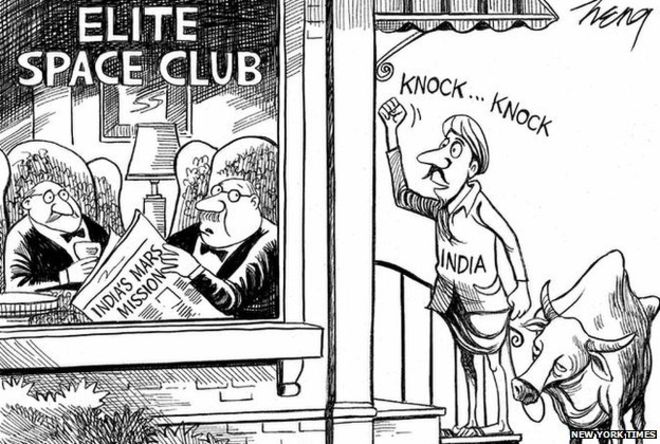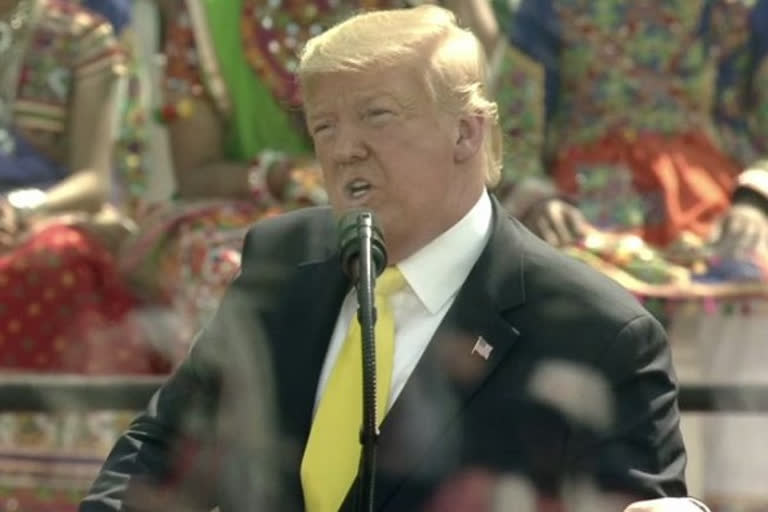Hyderabad: A few years ago, leading American publication New York Times published a cartoon mocking India’s Mars Mission. Later the American newspaper apologised to its readers following an outrage.

In the cartoon published in September 2014, the newspaper showed a modest Indian farmer with a cow knocking on the doors of an elite club of space faring nations.
Perhaps, what offended some readers more was the fact that instead of celebrating and praising India’s success, as it was able to send an operational mission to Mars in the first attempt, the New York Times was trying to mock India’s feat which was achieved at a fraction of the cost of the US Mars mission Maven.
However, in less than six years, the situation has turned upside down. In his address at Motera stadium in Gujarat, the US President Donald Trump proudly announced that his country was working closely with India on the future of space exploration.
“You are making impressive strides with your exciting Chandrayan, the lunar program is moving along rapidly far ahead of schedule,” said Donald Trump while praising the recent success of Indian Space Research Organisation (ISRO).
Despite being a developing country, India has rich experience and robust technology in the field of rockets and satellites. The country is not only building world class telecommunication and weather satellites on its own, but it has also developed PSLV and GSLV series of rockets to launch them in space.
Moreover, Indian scientists have done it at a fraction of the cost than their peers in other countries. A fact, that threatens the dominance of the commercial usage of space technology.
Prime Minister Narendra Modi has often referred to the success of India’s Mars Mission (Mangalyan) by citing its meager budget. He said, India was able to achieve the feat in a budget smaller than that of a Hollywood movie.
Read more: Will oil save the day for Indo-US trade relations
India was also able to do it right in the first attempt at the meager cost of $74 million whereas NASA’s Maven Mars probe cost 10 times more than that, which also reached Mars in the same year.
As per some estimates, the worldwide space industry was estimated to be worth $330 billion in 2015. It consists of three main fields, satellite manufacturing, launch vehicles and ground equipment and support system.
India’s mastery of space technology and low costs make it attractive for western powers to court India.
“America look forward to expanding our space cooperation with India as you push even further you are pushing the limits and that's a great thing, including in the realm of human spaceflight,” said the US leader.
It's a complete reversal of the story in less than six years when a New York Times cartoon was considered extremely derogatory by some readers as it tried to mock India’s cost advantage over others in the field of space technology.
A fact now well recognised by the leader of the world’s most powerful and most industrialised nation.
“The United States and India will be friends and partners on our voyage into the stars and into space. It is truly extraordinary. What this nation has achieved in the span of just one lifetime,” said President Trump amid a thunderous applause by the people present in Motera stadium.
(Article by Senior Journalist Krishnanand Tripathi)



